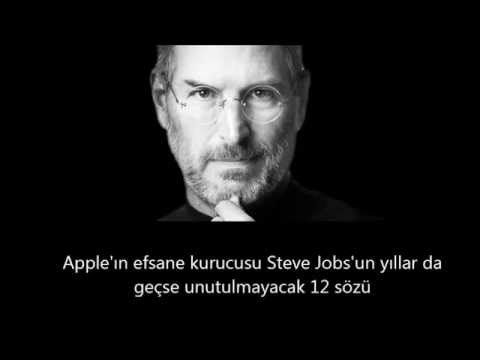Contents
To decide whether “All bachelors are unmarried” is true, for example, one does not need to consult experience. Simply look at the subject concept (“bachelors”) and determine if it contains the predicate concept “unmarried.”In fact, “unmarried” is part of the definition of “bachelor” and so is included in it. As a result, without consulting experience, the assertion “All bachelors are unmarried” can be known to be true. This implies, therefore, that all analytic propositions are a priori; there are no a posteriori analytic propositions, Kant contended. Second, there is no difficulty in comprehending how we can know analytic propositions; we can know them since all we have to do is consult our concepts to discover whether or not they are true. Kant offers one other argument that house and time are intuitions and never concepts.
- This fundamental postulate subsequently allows us to equate the a priori likelihood to the degeneracy of a system, i.e. to the number of totally different states with the same vitality.
- Historians often generate different interpretations of the same event, even when reading the same primary sources, and these interpretations are always subject to revision by other historians.
- State cannot intervene in the personal laws of communities.
- Critique of Pure Reason Kant used these distinctions, partly, to elucidate the special case of mathematical information, which he thought to be the fundamental instance of a priori information.
- In order to understand Kant, it’s essential to know that intuitions don’t abstract themselves.
This distinguishes propositional knowledge from know-how or procedural knowledge, which is the knowledge of how to perform some task. This article discusses propositional knowledge from a variety of perspectives, including philosophy, science, and history. In philosophy term, a posteriori is sometimes used interchangeably with empirical knowledge based on observation. There are so much debate and disagreement over the exact list of different types of knowledge, so no such list has ever existed. This is because the concept of knowledge is purely philosophical and everyone has a different opinion about what it is or what it is not.
Knowledge in science and engineering
Or, put one other method, any outcomes to date is not going to provide you with an edge in predicting future outcomes. The likelihood of ending with heads or tails is 50% with every coin toss regardless of whether or not you could have a run of heads or tails. Kant nominated and explored the potential for a transcendental logic with which to consider the deduction of the a priori in its pure type.
There are many different disciplines that generate beliefs that can be regarded as knowledge. The article Knowledge discusses the view of philosophers on how one can tell which beliefs constitute actual knowledge. The proposition that all bachelors are unmarried is apriori. “All bachelors are unmarried.” “All triangles have three sides.” “All bodies are extended,” Kant says, implying that they occupy space.
The same thing that justifies us in accepting the principle of induction. Because we understand the concept justification, we have a philosophical intuition that IBE is true and that intuition provides the justification. As with induction, if we were not justified in accepting IBE, we would not be justified in our beliefs that implicitly rely on it. I’ve been into philosophy for around three or 4 years now, and consider myself intermediate in a range of topics, and but epistemology and logic are weak factors as I’ve never divested much time into both.
Wisdom increases one’s relationships with others in society and brings new meaning of life. Education is a means of discovering new knowledge and things which we do not know, therefore it increases our knowledge. Each of these assertions is an affirmative subject predicate judgement, with the subject concept containing the predicate concept.
Difference between Analytical Proposition and Synthetic Proposition
Some of them are about ourselves, some about the world, and some about what we should or should not do. But, in the end, all of our justified beliefs are ultimately based on a priori justification. This means, it’ll produce a extra accurate measure of a possible outcome. That rewritten probability turns into the ‘posterior probability’, which is then calculated utilizing Bayes’ theorem.
We are justified in believing that someone recently walked at the water’s edge on the basis of the human footprints we observe, either by the principle of induction or by the principle of IBE. We are justified in believing that some defendant is guilty of some crime because the hypothesis that he committed the crime best explains all the evidence presented at trial. Much like what has been previously said, an instance of this probability is flipping a coin.

Kant tells us that house and time are the pure types of sensible instinct. An a priori probability is a probability that is derived purely by deductive reasoning. Similarly the chance of considered one of a given https://1investing.in/ collection of K occasions is K / N. The prior chance of an occasion will change every time new knowledge or information turns into accessible. This knowledge is also known as knowledge gained by scientific method.
Realistic epistemology will plead the case of which type of knowledge?
For every space and time, Kant divides his discussion into what he calls a “Metaphysical” and a “Transcendental” Exposition. My unique query related to theorems of euclidean geometry ‘discovered’ in secondary school which all appeared to me so obvious that I may ‘see’ immediately the way to show them. What he argues here is that that is attainable only as a result of house and time are the pure a priori types of smart instinct. You can’t say that a stock’s value has three possible outcomes of going up, down, or staying flat when these outcomes are influenced by a range of out of doors factors that change the likelihood of every end result.

It is always tentative and cannot exist prior to experience or be concluded from observation. This formula can also be a way to see how hypothetical new info affects the likelihood of an event occurring. Investopedia editor, Adam Heyes, supplies two examples example of a priori knowledge under; one statistical and one numerical. The knowledge which we receive from prophets or religious books is called revealed knowledge. This knowledge is received through experience and training. It means the knowledge which we acquire after any experience .
Students also viewed
The a priori chance has an important software in statistical mechanics. The transcendental deduction argues that time, house and causality are best as much as real. René Descartes, going additional in the same path, held that all the concepts required for a priori knowledge have been innate in every human mind. So the a priori chance of rolling a six on a six-sided die is one divided by six.
What is a priori in statistics?
A posteriori propositions are pretty straightforward since we tend to be comfortable with knowledge based on memories, experiences and data derived from our senses. This type of knowledge comes from theoretical reasoning rather than actual observation or personal experience. In finance, people extra commonly use empirical or subjective chance versus classical likelihood.
Truths of physics, chemistry, and biology are examples of a posteriori knowledge. Knowledge has helped humans to preserve knowledge and transfer it to next generation due to that our civilization made progress with time. Which of the following statements is true about secularism in India? Neither state nor religion can interface in the affairs of one another. Indian state must maintain a principled distance from religion. State cannot intervene in the personal laws of communities.
Kant makes that distinction, if a little indirectly by pointing out that some geometrical ideas that are true , are not necessarily true in physical space. Also, we have to distinguish between the artificial a priori and the analytic a priori. The point here is that house and time are intuitions and never concepts. W. Leibniz launched a distinction between a priori and a posteriori standards for the potential of a notion in his brief treatise “Meditations on Knowledge, Truth, and Ideas”.
Philosophers use the term ‘intuition’ in a slightly different sense than it is used in everyday discourse. Generally speaking, the difference is that philosophical intuitions are based solely on understanding a proposition, while non-philosophical intuitions are not. ‘Red is a colour’ seems true to you solely on the basis of your understanding that proposition. That seeming true is a philosophical intuition, and it is what justifies you in believing that red is a colour. Many, but not all, philosophers hold that a priori justification is based on philosophical intuitions. Reading philosophy at university later, it appeared likely to me that this was an example of a priori knowledge.
This brand of chance made clear by multiplying the chance of the previous event by the updated chance of the consecutive – or the conditional – occasion. Compound likelihood is a mathematical term regarding the likeliness of two impartial events occurring. Each face of the die appears with equal chance — likelihood being a measure defined for every elementary event. The result’s completely different if we throw the die twenty occasions and ask how many times the number 6 appears on the upper face. In this case time comes into play and we now have a special kind of likelihood depending on time or the number of times the die is thrown.
One of the main benefits of the scientific method is that the theories it generates are much less situational than knowledge gained by other methods. To use scientific theories, they must be applied to the specific situation in hand. For example, a civil engineer might use the theory of statics to determine whether or not a bridge will hold up.
